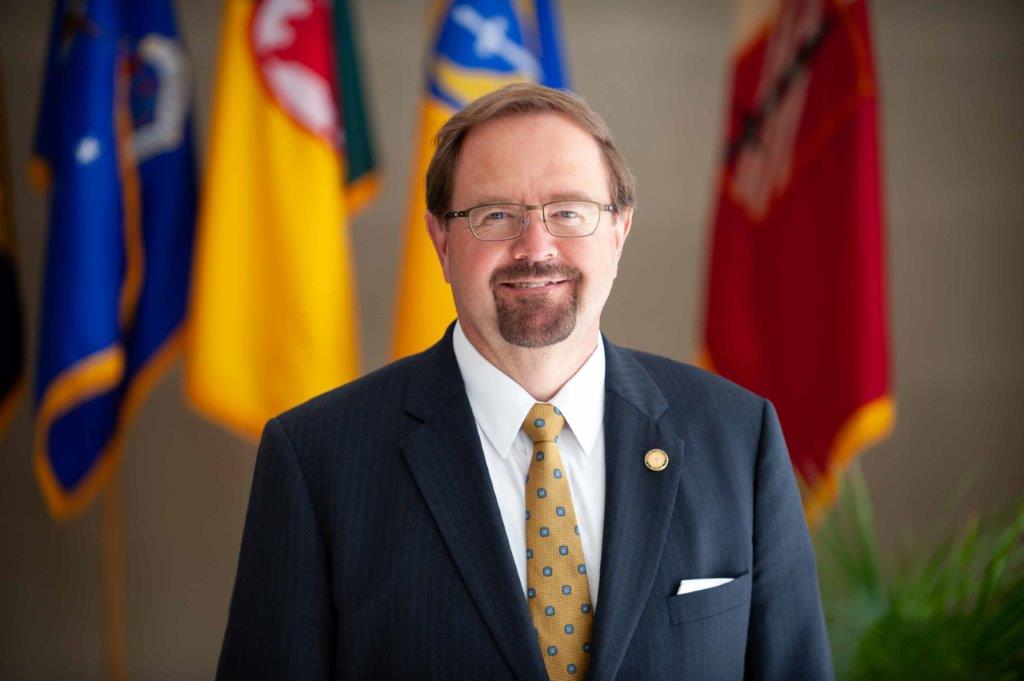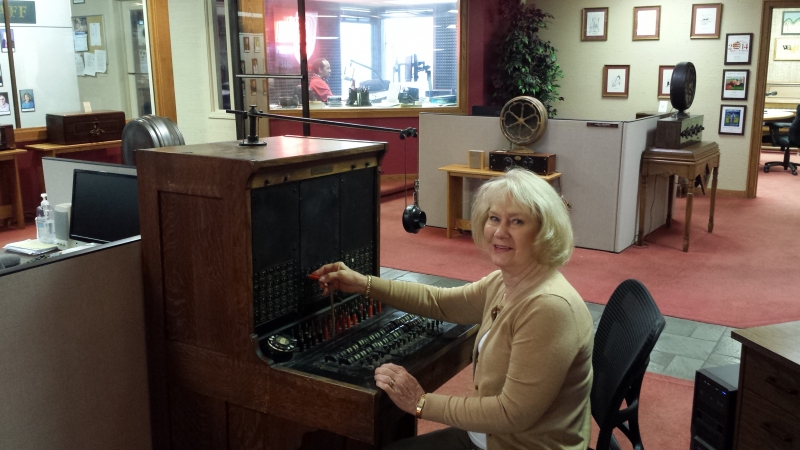For me, the last few weeks of the 2021 Legislative session were dominated by Government Operations Oversight hearings on our state's response to COVID-19, and the Executive Branches use of the $102 billion that our state received from the federal government. Chairing this oversight committee has been one of my most interesting assignments yet.
On top of this, as Chair of an Appropriations subcommittee, and a budget conferee to help work out the spending and tax plan differences between the Senate and the House, these last few weeks have been about as quick and intense as the first few weeks of this record-setting 11-month long session.
There's much I want to tell you about. We have some huge wins and some losses. I'll be writing you regularly over the next few weeks because there's no way to recap 11 months of work in only a few simple newsletters.
Following are a few notable highlights from Raleigh we'll begin with of which I thought you might have the most interest.
To get legislative news closer to the time it's happening, be sure to follow me on Facebook or frequently visit my website.
No Patient Left Alone Act - SB 191
SB 191, the No Patient Left Alone Act which of course I supported, passed both Chambers and has now been signed into law.
The COVID-19 pandemic has severely restricted family visitation opportunities for patients in health care facilities. Even families of patients not diagnosed with COVID-19 have been unable to visit their loved ones in their time of need.
SB 191 requires health care facilities to provide notice of visitation rights to patients and their families. In addition, patients - including patients in hospitals, nursing homes, combination homes, and hospice care facilities - will have restored patient visitation rights and compassionate care visitations.
Compassionate care situations that permit visitation are as follows:
(1) End-of-life situations.
(2) A patient who was living with his or her family before recently being admitted to the facility is
struggling with the change in environment and lack of physical family support.
(3) A patient who is grieving after a friend or family member recently passed away.
(4) A patient who needs cueing and encouragement with eating or drinking, previously provided by
family or caregivers, is experiencing weight loss or dehydration.
(5) A patient, who used to talk and interact with others, is experiencing emotional distress, seldom
speaking, or crying more frequently when the patient had rarely cried in the past.
Health care centers are still allowed to screen visitors for infectious diseases and require personal protective equipment, but patients will no longer be forced to suffer through restricted contact with their loved ones in their greatest time of need.
Hendersonville Christmas Parade
There is nothing I enjoy more than having the opportunity to get out and about in the District. This year's Hendersonville Christmas gave me, and thousands of onlookers the opportunity to see life return to some semblence normal, and have some fun.
It was invigorating to feel the energy of the parade, and I loved getting to see all of my constituents' smiling faces amongst the Christmas-decorated Hendersonville streets.
State Budget Enacted
It took months of arduous negotiation, but the State Budget, SB 105 - which I cosponsored and served as a conferee- has successfully passed and is now enacted into law. This is North Carolina's first state budget since 2018 due to the budget impasse in 2019 where the governor offered the legislature the "Medicaid or else" ultimatum.
I'm gratified to have played a role to bring NC a budget that prioritizes our citizens. Among other things, SB 105 lowers personal income tax to 3.99% over six years, invests in NC infrastructure, improves veteran friendliness by exempting their military pension income from state income tax, and makes considerable investments in improving teacher pay through state-funded salary supplements, raises, and bonuses. The budget also commits to significant improvements in school choice for families, under which we can expect a capacity to provide Opportunity Scholarships for more than 55,000 students a year by 2033.
My priority when entering the budgeting process was to ensure WNC did not get left behind. I pushed for a budget that addresses WNC concerns, rather than ignored them. With over $292 million allocated to WNC, and even more invested in trust fund programs that have a history of largely serving WNC counties, I believe I was able to do just that.
To see my press release on some of the most significant budget items secured for Western North Carolina, click here. Follow along on my social media to see additional highlights impacting the entire State.
The LEHI Conference
Earlier this year, I had the honor of attending and graduating the Legislative Energy Horizons Institute administered through the University of Idaho and held in Washington, DC. The LEHI Conference's comprehensive curriculum brings policymakers, energy producers, the U.S. Dept of Energy, and other stakeholders together to discuss energy infrastructure, delivery systems, regulation, and financing to meet our country's ever-changing energy needs.
The conference was a 4 day, learning-intensive opportunity to develop my knowledge and understanding of energy policy. For completion of the program, I was awarded a certificate in Energy Policy Planning.
I am one of just over 300 legislators and policymakers in the U.S. who have graduated from the class since it began in 2009, and I am excited to begin implementing what I have learned to better energy policy in the State of North Carolina.
Ongoing Subcommittee on Use and Distribution of Federal COVID Funding Hearings
I am honored to have been appointed to Co-Chair the Government Operations Subcommittee on Use and Distribution of Federal COVID Funding, a subcommittee dedicated to ensuring COVID relief funds are being constructively spent to benefit the citizens and status of COVID in North Carolina.
The hearings have been taking place since early November, during which we have met with members of DHHS, Governor Cooper's COVID Task Force, NC HOPE, the Division of Employment Security, among more. It has been enlightening to hear from key State officials on the processes agencies have been employing to spend funds under federal guidelines.
One thing that has been made clear after the numerous hearings thus far, is North Carolina needs to focus on measures that will advance our position against COVID, rather than stagnantly pushing for masks and vaccinations with no additional plans to address the critical needs of citizens or businesses struggling due to the pandemic. I am not asserting we stop vaccinations or other preventative methods to mitigate the spread; I am simply stating that executive officials cannot continue to sit back and yell for masks while having no other plans in place. We must begin looking at ways to address the residual hardships of lockdown and COVID-19 to help North Carolina recover when the time is right. North Carolina needs a path forward. Or in the least, blueprints of a path.
There will be two final hearings to come in 2022, I look forward to hearing more about the intricacies of North Carolina's COVID response and question the Executive Branch on the oversight of their spending.
Court of Appeals Blocks Judge Lee's Order for School Closures Over Personal Budget Preference in Leandro Case
Union County Judge, David Lee, attempted to violate the separation of powers through a judicial ultimatum that would require passage of a multi-billion dollar education budget plan to avoid the closure of all state public schools. The budget plan in question was cultivated all the way across the nation in California, and developers neglected to consult with any State legislatures before finalizing it.
Judge Lee obtained the idea to close schools from a judge in Kansas, who faced a similar policy debate and ordered all public schools be closed until his preferred budget was passed. In Judge Lee's inquiry of the Kansas State Legislature's response, he blatantly revealed he believes a statewide school closure order would expedite the passage of his preferred plan by putting pressure on legislators. The Judge attempted to issue a mirroring order just weeks later. However, the county-level trial judge's actions are merely undermining his credibility in the judicial branch by trying to facilitate action in the legislative branch, and the North Carolina Court of Appeals agrees.
Judge Lee's repulsive attempt to degrade our Constitution has been rightfully blocked by the North Carolina Court of Appeals - citing an attempt to "devastate the clear separation of powers between the Legislative and Judicial branches" and a threat "to wreck the carefully crafted checks and balances that are the genius of our system of government".
Crossing governmental boundaries to push one's own political agenda is unacceptable and unconstitutional. Both Judge Lee and the Kansas judge attempted to utilize the public education system and our state's youth as a pawn to manipulate compliance by the Legislature on a matter in which they lack any authority. The Constitution has always been clear on the question of who decides how to spend state dollars and now the NC Court of Appeals affirms. It has always been the legislature, and only the legislature. Judicial interference is constitutionally impermissible.
Governor Vetoes to Continue Abuse of Power
HB 264: Emergency Powers Accountability Act
North Carolina is one of only fifteen states that does not set a time limit on a Governor's state of emergency declaration. Furthermore, only the issuing power of a state of emergency may rescind it. Consequently, for decades the Governor of North Carolina has had the ability to issue a state of emergency that extends for any amount of time, unchecked by others.
HB 264, which passed with my support in October, looked to address these issues. With the passage of this bill, the Council of State would have to approve emergency orders within seven days of their issuance. Additionally, an emergency order could not extend past forty-five days absent a majority vote in the House of Representatives and Senate. These limitations are necessary to ensure accountability at the executive level. No one individual, including the Governor, should have the ability to exercise unilateral authority during an emergency.
That being said, on November 1, in an act to solidify his continued abuse of emergency powers, Governor Cooper vetoed HB 264. This fixed his continued use of emergency powers devoid of a time limit. North Carolina has been under a Governor Cooper-induced state of emergency for the COVID-19 pandemic since March 10th of 2020. That is over 600 days of a consecutive state of emergency declaration; however, I maintain that no emergency can last 600 days without becoming the new normal.
At Last, Balance of Power Bill Now Enacted into Law
Governor Cooper's continued abuse of power and decomposition of democracy is unacceptable. Finally, we now have legislation that will undisputedly declare the authorities and processes under which we will function under future states of emergency. SB 105 which I co-sponsored, included terminology which provides the common-sense checks and balances necessary to regulate the Governor's authority. Despite his prior objections to similar provisions, Governor Cooper received and signed SB 105 without objections on the same day.
Effective July 1, 2021, Section 19E.6.(b) of SB 105 places a 30-day expiration date on statewide declarations of emergency without the concurrence of the Council of State, and prevents the Governor from extending such a declaration without their concurrence. The bill also requires that any extensions of an emergency declaration to more than two-thirds of North Carolina counties at once are required to obtain concurrence. If the Council of State concurs with the declaration of emergency, the issue will now have a 60-day expiration date. Following concurrence by the Council of State, a declaration of emergency may only be further extended by the enactment of a general law from the General Assembly, extending the declaration of emergency.
If the Council of State does not concur, or the General Assembly does not enact legislation, the Governor may not issue a similar declaration from the same series of events as the initial declaration. This provision of SB 105 will finally place much-needed restraints on Governor Cooper's erroneous abuse of power and can officially aid North Carolina in recovering from the initial impacts of the COVID-19 pandemic. The pandemic is not over, but North Carolina is no longer in a state-of-emergency and we must begin to acknowledge that fact and stand on our own two feet, devoid of government subsidies, to begin moving forward.
Electoral Maps Approved by Both House and Senate, Affirmed by NC Judge in First of Three Legal Challenges
After nearly four grueling months, my colleagues and I have officially passed HB 976, SB 739, and SB 740. These bills encompass the new House, Senate, and Congressional redistricting plans that depict districts within which State and Congressional candidates will be elected to serve over the next 10 years. All three bills are officially written into law, and one lawsuit has already been filed asserting foul map drawing because the legislature did not consider any racial data. Keep in mind, these are the same claimants that filed suit arguing we did consider racial data back in 2019. The legislature can not win when drawing maps. Lawsuits are inevitable in today's "sue til you're blue" strategy. This can be seen through recent legal challenges disputing the credibility of our newly drawn maps. Despite this, I must say that I am confident the House and Senate have crafted and approved constitutional maps that pass all legal scrutiny. Superior Court Judge Graham Shirley affirmed my confidence when she denied a request to put our new maps on hold, which would have delayed the next election.
With the passage of the new maps, it has also become official there will be a shift in District 48. Instead of representing Transylvania, Henderson, and a portion of Buncombe counties, District 48 will now be composed of Henderson, Polk, and Rutherford counties.
Buncombe County By-District School Board Elections:
HB 118 Update
As of November 29, HB 118, Buncombe School Bd. Election, passed the Senate and has been sent to the House for concurrence.
At the request of numerous concerned citizens, I authored this bill which will require all six members of the Buncombe County Board of Education to be elected by eligible voters from the district each of those members represents. This bill is critical to diversify and improve the support provided by the Board of Education for students across Buncombe County.
With the way the current Board of Education is elected, children in Buncombe County are not being fairly represented by members of their direct community. At-large elections distance the vote from home and allow supermajorities in densely populated neighborhoods to outvote representatives from the more spread out - yet equitably significant - districts.
Since passing the Senate floor, the bill has been re-referred to the Committee on Rules, Calendar, and Operations of the House. I look forward to seeing the bill make its' final movements through the House before being voted on. Ultimately, the vote in Buncombe County needs to be brought closer to home so accessibility to board members can improve and one's school board vote will have weight and power again. I will continue to advocate for this important piece of legislation as we head towards the short session this Spring.
Domestic Violence Awareness Month
** This message contains a discussion of domestic violence. If you or someone you know is being mistreated or hurt by a partner, reach out to the National Domestic Violence hotline available 24/7 by calling 1(800) 799-7233; or, if you are unable to speak safely, you can chat online at thehotline.org **
In the month of October, we honored Domestic Violence Awareness Month. Domestic violence is a virulent situation that can affect individuals from all walks of life. It is often an unseen issue whose burden gets carried alone by those experiencing it firsthand.
As citizens, loved ones, friends, and especially in my role as a legislator, it is important to raise awareness for victims and survivors of domestic violence and acknowledge the ongoing fight against it. For that reason, I would like to share with you some of the recent bills signed into law in North Carolina regarding domestic violence and the protection of victims and survivors of domestic violence.
One of the most recent bills signed into law is SB 693, Expedite Child Safety and Permanency. SB 693 aims to ensure the safety of children in out-of-home placements and facilitate an accelerated permanent placement process for children between homes; however, additionally - and more applicably to the issue of domestic violence - the bill works to raise awareness of child abuse and neglect by requiring public schools provide educational information and resources to make students knowledgeable of domestic violence in Grades 6-12. These resources educate students on warning signs of abuse and how to report it. They must be distributed to students at the beginning of each school year and displayed in visible areas of all public schools.
In addition to SB 693, SB 300 protects survivors and victims of domestic violence from their abusers through a stipulation permitting them to appear in, or submit an audio/video clip for, court to be heard regarding an offender's petition for the termination or modification of a satellite-based monitoring requirement. By allowing survivors and victims of domestic abuse to speak on behalf of their personal experiences with an offender prior to the courts making a decision for reduced SBM, we are ensuring that violent offenders do not have the opportunity to evade justice.
The final piece of legislation I want to discuss, I filed earlier this year. SB 431, an act to allow for permanent domestic violence protective orders, would alter Chapter 50B on Domestic Violence to permit for the issuance of life-long protective orders against violent domestic abusers. This is a change from current state law which only allows DVPO's to be active for a period of a year or less, with an opportunity for a 2-year extension. Eliminating the annual renewal of a protective order can protect domestic violence survivors and victims from having to face their abuser every 12 months. Further, it reduces the risk of contact between both parties by no longer requiring an annual court petition to renew the protective order. Currently, if a request is not filed prior to the expiration of the previous order, no action can be taken and the abuser must be released. Eliminating the risk that an order will expire at all would aid in providing peace of mind and safety to survivors and victims. SB 431 has not moved through the General Assembly yet; however, it begins a much-needed conversation on revisions to current laws that lack adequate protection for domestic violence survivors.
To close out Domestic Violence Awareness Month, I would like to share an inspiring story entrusted to me by a domestic violence survivor in North Carolina. The survivor has encouraged that I share this story:
"For years, I went to bed not knowing if I would live to see the next day, or if that next day would be my last. Every time I saw my abuser, I was constantly reminded that he could kill me at any moment and my sons would be left without a mother. No one should have to endure the abuse that I did. At the hands of my abuser, I endured constant physical and emotional abuse and unrelenting verbal attacks against me and my children. He wanted to silence me. Now, I refused to be silent. I speak out for victims and survivors like me and fight for change."
If you or someone you know is being mistreated or hurt by a partner, please reach out to the Domestic Violence Hotline available 24/7 by calling 1(800) 799-7233, or if you're unable to speak safely, you can chat online at thehotline.org. Overcoming abuse does not happen instantly. It takes conscious, positive steps every single day. Let today be the day you start to move forward and know that you are not alone.
























